
In 1944, as a teenager in Hungary, Elie Wiesel, was deported by the Nazis to the concentration camp in Auschwitz. Freed by American troops in April 1945, Wiesel went on to win the Nobel Peace Prize, 1986. He delivered this speech on 12 April 1999, in the White House, as a part of the Millennium Lecture series. Here is an edited version of the address.
Fifty-four years ago to the day, a young Jewish boy woke up, in a place of eternal infamy called Buchenwald. He was finally free, but there was no joy in his heart. Liberated a day earlier by American soldiers, he remembers their rage at what they saw. And even if he lives to be a very old man, he will always be grateful to them for that rage, and also for their compassion. Though he did not understand their language, their eyes told him what he needed to know—that they, too, would remember and bear witness.
Gratitude is a word that I cherish. Gratitude is what defines the humanity of the human being.
We are on the threshold of a new century. What will the legacy of this vanishing century be? Surely it will be judged and judged severely. These failures have cast a dark shadow over humanity: two World Wars, civil wars, senseless assassinations—Gandhi, the Kennedys, Martin Luther King, Sadat—bloodbaths in Cambodia and Nigeria, India and Pakistan, Ireland and Rwanda; the inhumanity in the gulag and Hiroshima. And, on a different level, Auschwitz and Treblinka. So much violence, so much indifference.
Denne historien er fra January 2021-utgaven av Reader's Digest India.
Start din 7-dagers gratis prøveperiode på Magzter GOLD for å få tilgang til tusenvis av utvalgte premiumhistorier og 9000+ magasiner og aviser.
Allerede abonnent ? Logg på
Denne historien er fra January 2021-utgaven av Reader's Digest India.
Start din 7-dagers gratis prøveperiode på Magzter GOLD for å få tilgang til tusenvis av utvalgte premiumhistorier og 9000+ magasiner og aviser.
Allerede abonnent? Logg på
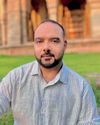
ME & MY SHELF
Siddharth Kapila is a lawyer turned writer whose writing has focussed on issues surrounding Hinduism. His debut book, Tripping Down the Ganga: A Son's Exploration of Faith (Speaking Tiger) traces his seven-year-long journey along India's holiest river and his explorations into the nature of faith among believers and skeptics alike.

EMBEDDED FROM NPR
For all its flaws and shortcomings, some of which have come under the spotlight in recent years, NPR makes some of the best hardcore journalistic podcasts ever.
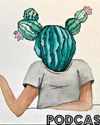
ANURAG MINUS VERMA PODCAST
Interview podcasts live and die not just on the strengths of the interviewer but also the range of participating guests.
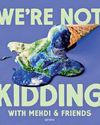
WE'RE NOT KIDDING WITH MEHDI & FRIENDS
Since his exit from MSNBC, star anchor and journalist Mehdi Hasan has gone on to found Zeteo, an all-new media startup focussing on both news and analysis.
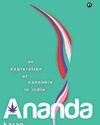
Ananda: An Exploration of Cannabis in India by Karan Madhok (Aleph)
Karan Madhok's Ananda is a lively, three-dimensional exploration of India's past and present relationship with cannabis.
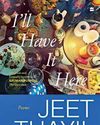
I'll Have it Here: Poems by Jeet Thayil, (Fourth Estate)
For over three decades now, Jeet Thayil has been one of India's pre-eminent Englishlanguage poets.
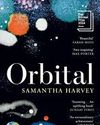
Orbital by Samantha Harvey (Penguin Random House India)
Samantha Harvey became the latest winner of the Booker Prize last month for Orbital, a short, sharp shock of a novel about a group of astronauts aboard the International Space Station for a long-term mission.

She Defied All the Odds
When doctors told the McCoombes that spina bifida would severely limit their daughter's life, they refused to listen. So did the little girl

DO YOU DARE?
Two Danish businesswomen want us to start eating insects. It's good for the environment, but can consumers get over the yuck factor?

Searching for Santa Claus
Santa lives at the North Pole, right? Don't say that to the people of Rovaniemi in northern Finland